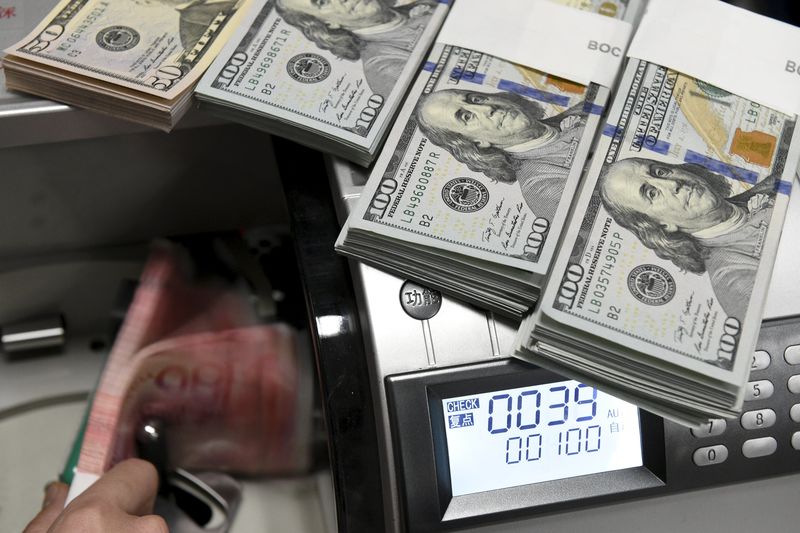Investing.com - The dollar weakened against a basket of currencies on Friday as Donald Trump became the 45th president of the United States and used his inaugural speech to hit populist themes on halting off-shoring of work that have raised concerns of a trade war with leading manufacturing exporters such as China.
The U.S. dollar index, which measures the greenback’s strength against a trade-weighted basket of six major currencies, dropped 0.31% to 100.79. USD/JPY changed hands at 114.59, down 0.24% after the speech and market close, while GBP/USD rose 0.23% to 1.2374 as the United Kingdom prepares to exit the European Union trade bloc and strike stronger trade ties to the U.S.
USD/CAD was nearly flat at 1.3317 as investors awaited further word on the fate of the North American Free Trade Agreement that also includes Mexico in a massive trade bloc. The peso, USD/MXN tumbled 1.66% to 21.58 on expectations that Trump's promise to build a wall on the southern border and impose some kind of import tax would hit current trade patterns hard.
"From this moment on, it's going to be America First," Trump said. "Every decision on trade, on taxes, on immigration, on foreign affairs, will be made to benefit American workers and American families. We must protect our borders from the ravages of other countries making our products, stealing our companies, and destroying our jobs. Protection will lead to great prosperity and strength."
Earlier, the dollar pulled back from session highs against the other majors currencies sparked by comments Thursday from Fed Chair Janet Yellen that the central bank should continue to raise interest rates, but slowly.
Speaking at a conference in San Francisco, Yellen said that "allowing the economy to run markedly and persistently ‘hot’ would be risky and unwise," before adding: "I consider it prudent to adjust the stance of monetary policy gradually over time."
Earlier, the pound had weakened after the U.K. Office for National Statistics said on Friday that retail sales declined 1.9% in December, confounding expectations for a 0.1% slip. Retail sales fell 0.1% in November, whose figure was revised from a previously estimated 0.2% rise.
Year-on-year, retail sales increased by 4.3% last month, compared to expectations for a 7.2% climb. Core retail sales, which exclude automobiles, dropped 2.0% in December, disappointing expectations for a 0.3% fall.
As well on Friday, data showed that China’s gross domestic product rose 6.8% in the fourth quarter of 2016, in line with expectations. Year-on-year, China’s economy grew at a rate of 6.8%, slightly above expectations for a growth rate of 6.7%.
The data eased concerns over a slowdown in the world’s second biggest economy, although worries surrounding the country’s growing debt persisted. AUD/USD traded at 0.7560, down 0.01% late on Friday after posting gains earlier in the day with Australia China’s biggest export partner.
